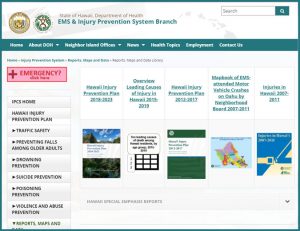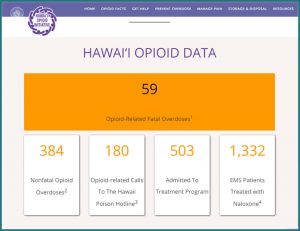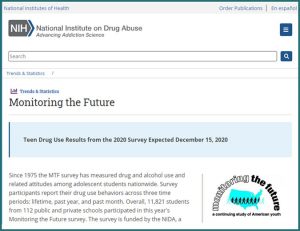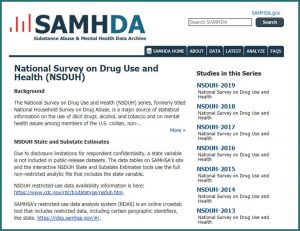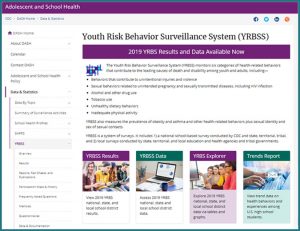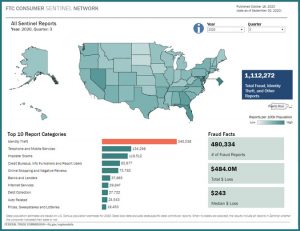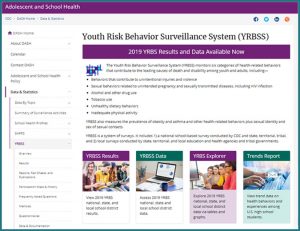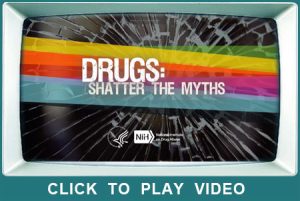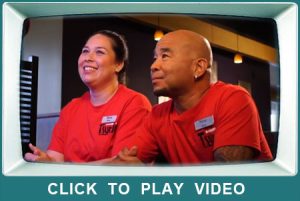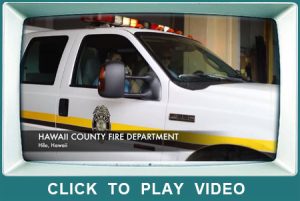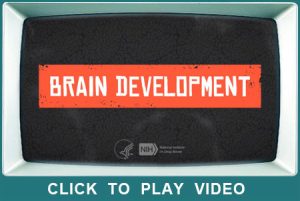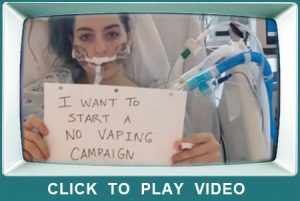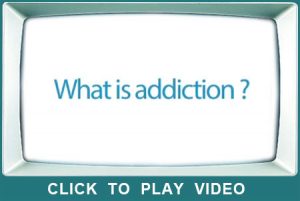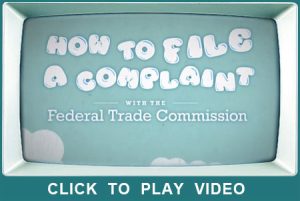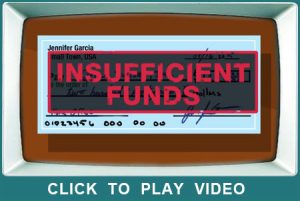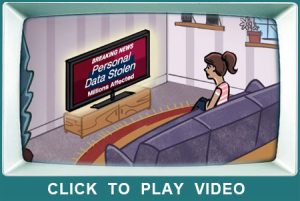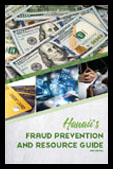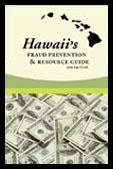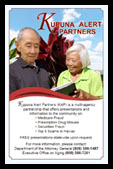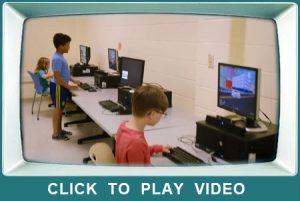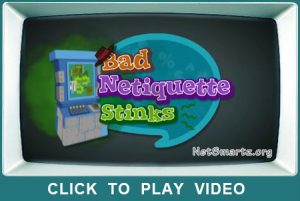Community and Crime Prevention Branch
The Community and Crime Prevention (CCP) Branch is responsible for the planning and implementation of informational and educational presentations and activities focused on the safety and well-being of the community. Crime prevention requires the efforts of law enforcement agencies, service providers, institutions (such as schools), families, individuals to address the root cause of delinquency and crime. CCP partners with federal, state, and county government agencies; service provider organizations; community coalitions; businesses; and individuals concerned about the safety and well-being of their neighborhoods.
Note: We do not link to any for-profit websites. We primarily post information provided by other government agencies, associations, and other organizations that we have specific partnership with.
Crime Prevention Categories
Alcohol, Tobacco, and Other Drugs (ATOD) Prevention
Misusing alcohol, tobacco, and other drugs can have immediate and long-term effects, especially if started at a young age. Learn the facts about its health and social consequences. The CCP Branch focuses on activities to educate and support communities to prevent the misuse of drugs. Prevention activities can increase protective factors, reduce risk factors, and promote healthy and pro-social development.
Protective Factors: strong and positive family bonds • parental monitoring of children’s activities and peers • clear rules of conduct that are consistently enforced within the family • involvement of parents in the lives of their children • success in school performance • strong bonds with institutions, such as school and religious organizations • adoption of conventional norms about drug use • mentors.
Risk Factors: parent abusing substances or suffer from mental illnesses • domestic violence in the home • lack of parent-child bonding • inappropriately shy or aggressive behavior in the classroom • failure in school performance • poor social coping skills • affiliations with peers displaying deviant behaviors • perceptions of approval of drug-using behaviors in family, work, school, peer, and community environments.
Emergency Medical Services (EMS) & Injury Prevention System Branch
The Department of Health, EMS & Injury Prevention System Branch, collaborates with partners across the state to address the leading causes of injury that include drowning prevention, fall prevention, poisoning prevention, suicide prevention, traffic safety, and violence and abuse prevention.
Hawaii Opioid Initiative (HOI)
HOI is a collaboration of public health, public safety, healthcare professionals, and community partners working together to address misuse and overdose related to opioids and other drugs.
Monitoring the Future Survey (MTF)
MTF survey measures drug and alcohol use and related attitudes among adolescent students nationwide.
National Survey on Drug Use and Health (NSDUH)
NSDUH provides national and state-level data on the use of tobacco, alcohol, illicit drugs (including the non-medical use of prescription drugs) and mental health in the United States.
Youth Risk Behavior Surveillance System (YRBSS)
YRBSS monitors six categories of health-related behaviors that contribute to the leading causes of death and disability among youth and adults, including:
- Behaviors that contribute to unintentional injuries and violence;
- Sexual behaviors related to unintended pregnancy and sexually transmitted diseases, including HIV infection;
- Alcohol and other drug use;
- Tobacco use;
- Unhealthy dietary behaviors; and
- Inadequate physical activity.
YRBSS is a system of a national school-based survey conducted by Centers for Disease Control and Prevention (CDC) and state, territorial, and tribal. YRBSS also includes local surveys conducted by state, territorial, and local education and health agencies and tribal governments.
Prevention is an approach that examines and addresses root causes rather than symptoms and it can improve long-term outcomes and decrease healthcare costs. Working upstream in prevention is building the safety fence so that people don't fall into the water at all.
Prevention Tips for Preschoolers (2-4 years old)1:
The preschool years are all about laying the foundation for healthy habits.
• Explain the importance of taking good care of our bodies – eating right, exercising and getting a good night’s sleep. Discuss how good you feel when you take care of yourself — how you can run, jump, play and even go to work for many hours.
• Celebrate your child’s decision-making skills. Whenever possible, let your child choose what to wear to help reinforce your child’s ability to make decisions.
• Help your child avoid dangerous substances that exist in their immediate world. Point out harmful chemicals commonly found in homes, such as bleach, kitchen cleaners and furniture polish.
• Keep all substances out of sight and out of reach of kids.
• Help your child understand the difference between make-believe and real life. Ask your child what they think about a TV program or story. Let your child know about your likes and dislikes and discuss how violence or bad decisions can hurt people.
• Turn frustration into a learning opportunity. If a tower of blocks keeps collapsing during a play session, work with your child to find possible solutions to the problem. Whenever possible, allow your child to come up with solutions so that they can gain confidence in their own abilities to problem solve or self-soothe.
Prevention Tips for Early Elementary (5-8 years old)1:
Younger elementary school children still crave time and connection with family, and most are eager to please, but they’re also beginning to explore their individuality.
• Talk to your child about substance-related messages they see on TV or in movies or overhear at school. Ask your child how they feel about the things they’ve seen or heard — you’ll learn a great deal about what they’re thinking.
• Keep your discussions about substances focused on the present — long-term consequences are too distant to have meaning to most children of this age.
• Discuss the differences between the medicinal uses and illegal uses of drugs, and how taking prescription medicine the wrong way can be very dangerous.
• Set clear rules and expectations. If you smoke cigarettes, use vaping products or drink alcohol, be mindful of the message you are sending to your children. Try not to convey that it takes a drink or pill to relax, relieve stress or have fun. Be clear that alcohol and other substances are especially dangerous for children whose brains and bodies are still developing.
• Work on problem solving together: Help them find long-lasting solutions to homework trouble, a fight with a friend or dealing with a bully. Be sure to point out that quick fixes are not long-term solutions. Even if the choices they end up making are not exactly what you may have had in mind, there is opportunity to build confidence and resilience (assuming the choices are not dangerous).
• Get to know your child’s friends — and their parents. Check in to make sure they are giving their children the same kinds of messages you are giving yours. If those messages or different or inconsistent with yours, talk with your children about how different people make different choices. Explain why you believe your family’s choices are best for you and your children.
Prevention Tips for Preteen (9-12 years old)1:
Preteens who are trying to figure out their place in the world tend to give their friends’ opinions a great deal of power. At the same time, they’re also beginning to question their parents’ views and rules. This shift is natural, healthy and part of a normal process of maturity and identity development.
• Make sure your child knows your rules — and that you’ll enforce the consequences if rules are broken. Children are less likely to use nicotine, alcohol and other substances if their parents have established a pattern of setting clear rules and consequences.
• Feelings of insecurity, doubt and pressure may creep in during puberty. Offset those feelings with a lot of positive comments about your child’s individuality and strengths. Focus on their effort, creativity and kindness rather than specific outcomes such as good grades or winning a game.
• Get to know your child’s friends — and their friends’ parents. Check in by phone or a visit occasionally to make sure they are on the same page about supervision and prohibiting substance use, particularly when their home is to be used for a party or sleepover.
• Help children separate reality from fantasy. Watch shows or movies with them and ask lots of questions to reinforce the distinction between the two. Remember to include advertising in your discussions, as those messages are especially powerful.
Prevention Tips for Teenagers (13-18 years old) 1:
We know teens are incredibly savvy when it comes to their knowledge about substance use, and they need information and messages based in real life. This is a pivotal time for parents to help their teens make positive choices about substances.
• Make sure your teen knows the rules and the consequences for breaking those rules — and, most importantly, that you really will enforce those consequences. Teens are less likely to use nicotine, alcohol and other substances if their parents have established a pattern of setting clear rules and consequences for breaking those rules. Those consequences should be reasonable, enforceable and short-lived. If there’s no end in sight, teens will feel like there’s no way out and no real reason to continue to refrain from engaging in the undesired behavior.
• Make it clear that you disapprove of all alcohol, vaping, nicotine and drug use, and look for opportunities to discuss your feelings about substance use in a productive way: letters from the school, reacting to advertisements or seeing substance use on TV and in movies. Be ready to listen rather than give a lecture. Try using open-ended questions to get the conversation started.
• Let your teen in on all the things you find wonderful about them. They need to hear a lot of positive comments about their lives, who they are as individuals and all the wonderful things they have to look forward to if they are to remain healthy and safe.
• Show interest in and discuss your teen’s daily ups and downs. You’ll earn their trust, learn how to talk to each other, and you won’t take them by surprise when you voice a strong point of view about substances.
Prevention Tips for Young Adults (19-25 years old)1:
As you prepare your young adult for life after high school, you can help guide them to a healthy experience — while still supporting their independence.
• Keep an open line of communication with your young adult as they leave home.
• Your young adult needs to know that if any problems or difficult situations arise, they can turn to you for help. Be an at-home resource for your young adult.
• Stay alert to possible mental health issues. There is a strong link between mental and physical health issues (including stress and anxiety) and substance use. Make sure you know what campus mental health resources are available to your young adult — and make sure they know, too.
• While the most popular drugs on college campuses are alcohol, vaping and marijuana, non-medical use of prescription stimulants, pain relievers and tranquilizers is also common and can be very dangerous. Though prescription medications can be beneficial when prescribed for your young adult by a doctor, their misuse (e.g., using someone else’s pills or in amounts or for reasons not prescribed) can have serious short- and long-term consequences.
Source:
1. Drug Prevention Tips for Every Age (02/2017). Partnership to End Addiction. drugfree.org
If someone has overdosed, immediately call 9-1-1.
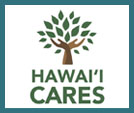 Hawaii Coordinated Access Resource Entry System (CARES) is a free mental health and substance use 24/7 call center. Oahu (808) 832-3100 and Toll-Free 1-800-753-6879. https://hicares.hawaii.gov
Hawaii Coordinated Access Resource Entry System (CARES) is a free mental health and substance use 24/7 call center. Oahu (808) 832-3100 and Toll-Free 1-800-753-6879. https://hicares.hawaii.gov
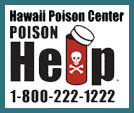 If you think someone has been poisoned:
If you think someone has been poisoned:
For advice after contact with poison, call Hawaii Poison Center at 1-800-222-1222 or go to www.hipoisoncenter.org.
The following link will provide you with information on Hawaii’s laws relating to substance abuse/misuse. For the most recent Hawaii Revised Statutes, go to https://www.capitol.hawaii.gov
§329-14 Schedule I
§329-16 Schedule II
§329-18 Schedule III
§329-20 Schedule IV
§329-22 Schedule V
§706-622.5 Sentencing for first-time drug offenders; expungement
§706-622.8 First-time drug offender prior to 2004; probation; expungement
§709-903.5 Endangering the welfare of a minor in the first degree
§709-904 Endangering the welfare of a minor in the second degree
§712-1240.5 Manufacturing a controlled substance with a child present
§712-1241 Promoting a dangerous drug in the first degree
§712-1242 Promoting a dangerous drug in the second degree
§712-1243 Promoting a dangerous drug in the third degree
§712-1244 Promoting a harmful drug in the first degree
§712-1245 Promoting a harmful drug in the second degree
§712-1246 Promoting a harmful drug in the third degree
§712-1246.5 Promoting a harmful drug in the fourth degree
§712-1247 Promoting a detrimental drug in the first degree
§712-1248 Promoting a detrimental drug in the second degree
§712-1249 Promoting a detrimental drug in the third degree
§712-1249.6 Promoting a controlled substance in, on, or near schools, school vehicles, or public parks
§712-1249.7 Promoting a controlled substance through a minor
§712-1250 Promoting intoxicating compounds
§712-1251 Possession in a motor vehicle; prima facie evidence
Alcohol
§281-101.5 Prohibitions involving minors; penalty
§291E-3 Evidence of intoxication
§291E-61 Operating a vehicle under the influence of an intoxicant
§291E-61.5 Habitually operating a vehicle under the influence of an intoxicant
§291E-62 Operating a vehicle after license and privilege have been suspended or revoked for operating a vehicle under the influence of an intoxicant; penalties
§291E-64 Operating a vehicle after consuming a measurable amount of alcohol; persons under the age of twenty-one
§291E-66 Circumvention of, or tampering with, an ignition interlock device by a person who has been restricted to operating a vehicle equipped with an ignition interlock device; penalties
§291E-67 Assisting or abetting the circumvention of, or tampering with, an ignition interlock device; penalties
§712-1250.5 Promoting intoxicating liquor to a person under the age of twenty-one
Cannabis
§329-128 Fraudulent misrepresentation; penalty
§712-1249.4 Commercial promotion of marijuana in the first degree
§712-1249.5 Commercial promotion of marijuana in the second degree
Methamphetamine
§712-1240.7 Methamphetamine trafficking
§712-1240.9 Methamphetamine trafficking; restitution and reimbursement
Inhalants
§330-8 Use of certain chemical substances as inhalants unlawful
Prescription Drugs: Non-Medical Use
§328-123 Salvaging and reprocessing
§328C-3 Sale of donated pharmaceuticals or health care supplies, prohibited; fines
§328C-5 Reserving the State’s authority to regulate, inspect, or ban the use of donated pharmaceuticals or health care supplies
Tobacco Prevention
§302A-102 Smoking prohibited; exception
§328J‑2 Prohibition in facilities owned by the State or the counties
§328J‑3 Prohibition in enclosed or partially enclosed places open to the public
§328J‑4 Prohibition in enclosed or partially enclosed places of employment
§328J‑5 Prohibition in sports arenas, outdoor arenas, stadiums, and amphitheaters
§328J‑6 Presumptively reasonable distance
Crime Prevention in Our Community
It takes an entire community to prevent crime. The CCP Branch partners with federal, state, and county government agencies, service provider organizations, community coalitions, businesses, and individuals concerned for the safety and well-being of their neighborhoods through various activities and presentations on the topics on the prevention of substance misuse, Internet safety, identity theft and fraud, bullying prevention, underage drinking prevention, and crime prevention. This section also includes crime data from the Research and Statistics Branch, Department of the Attorney General and county police departments of Hawaii, Maui, Honolulu, and Kauai. By knowing the crime data in your neighborhood, communities can work together to create a plan to prevent crime.
COUNTY DATA
For crime data in your community, go to your local police department’s webpage.
Hawaii Police Department
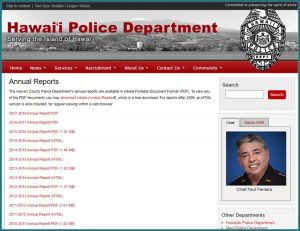 Hawaii Police Department provides police services for the island of Hawaii also known locally as “Big Island”. The island is divided into two areas: Area I or East Hawaii includes Hamakua, North Hilo, South Hilo, and Puna; and Area II or West Hawaii includes North Kohala, South Kohala, North Kona, South Kona, and Kau.
Hawaii Police Department provides police services for the island of Hawaii also known locally as “Big Island”. The island is divided into two areas: Area I or East Hawaii includes Hamakua, North Hilo, South Hilo, and Puna; and Area II or West Hawaii includes North Kohala, South Kohala, North Kona, South Kona, and Kau.
For more information on Hawaii Police Department, annual reports, and crime maps, go to hawaiipolice.com.
Honolulu Police Department (HPD)
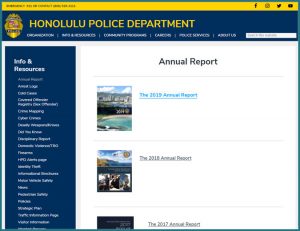 HPD is the principal law enforcement agency for the City and County of Honolulu, Hawaii. The police department services the entire island of Oahu, which is divided into eight patrol districts. District 1 includes downtown Honolulu area which covers Chinatown, Nuuanu, Makiki, Ala Moana, and Kakaako. District 2 covers Wahiawa area which includes Mililani, Schofield/Wheeler, Waialua, and Waimea. District 3 covers Pearl City area which includes Aloha Stadium, Aiea, Pearl Harbor, Pearl City, and Waipahu. District 4 covers the windward area which includes Waimanalo, Kaneohe MCBH, Waiahole, Waikane, Kahaluu, and Hauulu. District 5 covers the Kalihi area which includes Iwilei, Kalihi, Nuuanu, Kapalama, Alewa, and Nuuanu. District 6 covers Waikiki area which includes Kapiolani Park. District 7 covers east Honolulu which includes Moiliili, UH Manoa, Kaimuki, Kahala, and Hawaii Kai. District 8 covers Kapolei area which includes Ewa, Makakilo, Nanakuli, Waianae, and Makaha.
HPD is the principal law enforcement agency for the City and County of Honolulu, Hawaii. The police department services the entire island of Oahu, which is divided into eight patrol districts. District 1 includes downtown Honolulu area which covers Chinatown, Nuuanu, Makiki, Ala Moana, and Kakaako. District 2 covers Wahiawa area which includes Mililani, Schofield/Wheeler, Waialua, and Waimea. District 3 covers Pearl City area which includes Aloha Stadium, Aiea, Pearl Harbor, Pearl City, and Waipahu. District 4 covers the windward area which includes Waimanalo, Kaneohe MCBH, Waiahole, Waikane, Kahaluu, and Hauulu. District 5 covers the Kalihi area which includes Iwilei, Kalihi, Nuuanu, Kapalama, Alewa, and Nuuanu. District 6 covers Waikiki area which includes Kapiolani Park. District 7 covers east Honolulu which includes Moiliili, UH Manoa, Kaimuki, Kahala, and Hawaii Kai. District 8 covers Kapolei area which includes Ewa, Makakilo, Nanakuli, Waianae, and Makaha.
For more information on HPD, annual reports, and crime maps, go to honolulupd.org.
Kauai Police Department (KPD)
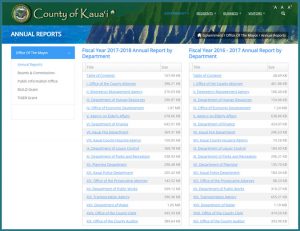 KPD provides law enforcement for the island of Kauai, which is divided into three patrol districts: Hanalei, Lihue, and Waimea.
KPD provides law enforcement for the island of Kauai, which is divided into three patrol districts: Hanalei, Lihue, and Waimea.
For more information on KPD, annual reports, and crime maps, go to kauai.gov/police.
Maui Police Department (MPD)
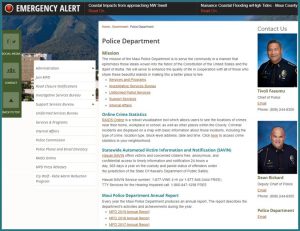 MPD provides law enforcement for Maui County, which includes the islands of Molokai and Lanai. MPD patrols six districts: Hana, Kihei, Lahaina, Lanai, Molokai, and Wailuku.
MPD provides law enforcement for Maui County, which includes the islands of Molokai and Lanai. MPD patrols six districts: Hana, Kihei, Lahaina, Lanai, Molokai, and Wailuku.
For more information on MPD, annual reports, or crime maps, go to mauipolice.com.
STATE DATA
Research and Statistics Branch, Crime Prevention and Justice Assistance Division, Department of the Attorney General
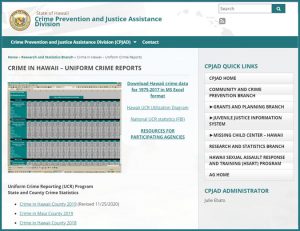 The Research and Statistics Branch is transitioning its reporting system from Uniform Crime Reporting (UCR) Program to the National Incident-Based Reporting System (NIBRS), which is implemented by the Federal Bureau of Investigations (FBI). NIBRS is an incident-based reporting system used by law enforcement agencies in the United States for collecting and reporting data on crimes, and it further examines each incident to provide information about the circumstances and context of crimes, such as, time of day, location, and whether the incident was cleared. The use of NIBRS is to improve the quality of crime data reported by law enforcement. ag.hawaii.gov/cpja/rs/
The Research and Statistics Branch is transitioning its reporting system from Uniform Crime Reporting (UCR) Program to the National Incident-Based Reporting System (NIBRS), which is implemented by the Federal Bureau of Investigations (FBI). NIBRS is an incident-based reporting system used by law enforcement agencies in the United States for collecting and reporting data on crimes, and it further examines each incident to provide information about the circumstances and context of crimes, such as, time of day, location, and whether the incident was cleared. The use of NIBRS is to improve the quality of crime data reported by law enforcement. ag.hawaii.gov/cpja/rs/
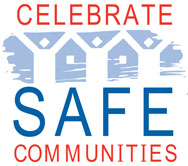 Celebrate Safe Communities (CSC) is a nationally recognized month in October which spotlights community activities that include crime prevention and efforts. In Hawaii, the event occurs in Honolulu, Hawaii, during the months of September, October, or November with 30 plus interactive exhibitors and displays to educate the public on how to prevent crime and keep themselves safe.
Celebrate Safe Communities (CSC) is a nationally recognized month in October which spotlights community activities that include crime prevention and efforts. In Hawaii, the event occurs in Honolulu, Hawaii, during the months of September, October, or November with 30 plus interactive exhibitors and displays to educate the public on how to prevent crime and keep themselves safe.
CSC is a partnership with the U.S. Attorney’s Office-District of Hawaii; Weed and Seed Hawaii; Department of the Attorney General, Crime Prevention and Justice Assistance Division; Department of Commerce and Consumer Affairs, Office of the Securities Commissioner; and Honolulu Police Department.
For more information on the National CSC, go to ncpc.org.
Visit us at ag.hawaii.gov in the fall for upcoming announcements.
 The Department of the Attorney General is a member of the HPPUD (pronounced H-pud) Coalition. HPPUD Coalition’s mission is to prevent or delay the early onset of substance misuse, including underage drinking, through collaborative planning and community action. The coalition was created to address the problem of underage drinking and is a partnership by federal, state, and county government agencies, service providers, businesses, and concerned individuals on the health and well-being of youth.
The Department of the Attorney General is a member of the HPPUD (pronounced H-pud) Coalition. HPPUD Coalition’s mission is to prevent or delay the early onset of substance misuse, including underage drinking, through collaborative planning and community action. The coalition was created to address the problem of underage drinking and is a partnership by federal, state, and county government agencies, service providers, businesses, and concerned individuals on the health and well-being of youth.
For more information on HPPUD Coalition, go to hppud.org.
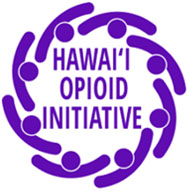 HOI is a collaboration of public health, public safety, healthcare professionals, and community partners working together to address misuse and overdose related to opioids and other drugs. Started in 2017, the HOI has seven workgroups that meet regularly to implement the HOI strategic plan and promote system improvement by integrating substance use prevention and treatment within Hawaii’s healthcare system.
HOI is a collaboration of public health, public safety, healthcare professionals, and community partners working together to address misuse and overdose related to opioids and other drugs. Started in 2017, the HOI has seven workgroups that meet regularly to implement the HOI strategic plan and promote system improvement by integrating substance use prevention and treatment within Hawaii’s healthcare system.
HOI is led by the Department of Health, together with the Department of the Attorney General, Department of Human Services Med-QUEST Division, Department of Public Safety Narcotics Enforcement Division, county police departments, and a wide range of community groups.
For more information, go to hawaiiopioid.org.
 Hawaii Coordinated Access Resource Entry System (CARES) is a free mental health and substance use 24/7 call center. Oahu (808) 832-3100 and Toll-Free 1-800-753-6879. Go to hicares.hawaii.gov for more information.
Hawaii Coordinated Access Resource Entry System (CARES) is a free mental health and substance use 24/7 call center. Oahu (808) 832-3100 and Toll-Free 1-800-753-6879. Go to hicares.hawaii.gov for more information.
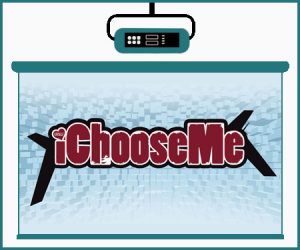 iChooseMe is a one-hour presentation on the prevention of substance misuse, such as vaping, underage drinking, marijuana, crystal methamphetamine, prescription drugs, and illicit street drugs. The Department of the Attorney General conducts presentations to middle and high school students, parents, and communities to understand its harmful effects, recognize the different forms, and prevention strategies. The presentation is a partnership with Department of the Attorney General, Crime Prevention and Justice Assistance Division, Community and Crime Prevention Branch; Department of Public Safety, Narcotics Enforcement Division; and supported by High Intensity Drug Trafficking Areas (HIDTA).
iChooseMe is a one-hour presentation on the prevention of substance misuse, such as vaping, underage drinking, marijuana, crystal methamphetamine, prescription drugs, and illicit street drugs. The Department of the Attorney General conducts presentations to middle and high school students, parents, and communities to understand its harmful effects, recognize the different forms, and prevention strategies. The presentation is a partnership with Department of the Attorney General, Crime Prevention and Justice Assistance Division, Community and Crime Prevention Branch; Department of Public Safety, Narcotics Enforcement Division; and supported by High Intensity Drug Trafficking Areas (HIDTA).
To request a presentation on iChooseMe, click here for online request form or email [email protected].
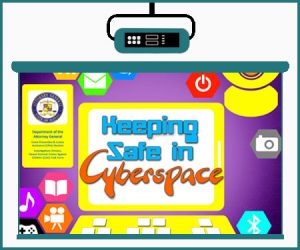 With more people online, it may increase exposure to inappropriate content and problem behaviors. Adults need to stay informed and monitor youth’s activities as a prevention tool from being victimized.
With more people online, it may increase exposure to inappropriate content and problem behaviors. Adults need to stay informed and monitor youth’s activities as a prevention tool from being victimized.
Keeping Safe in Cyberspace is an Internet safety presentation addressing problem behavior (e.g., cyberbullying, youth violence, online threats) and incidents of inappropriate exposure (e.g., sexting, pornography) among students and adults. This presentation provides elementary, middle, and high school students along with their parents on the topics of social media networking, online offenders, cyberbullying, and sexting. Each topic further delves into identifying the dangers, prevention strategies, and Hawaii laws. If participants see or know of inappropriate behaviors, they are encouraged to tell a trusted adult or contact the authorities.
This is a partnership the Department of the Attorney General, Crime Prevention and Justice Assistance Division, Community and Crime Prevention Branch; CrimeStoppers Honolulu; Hawaii Police Department; Honolulu Police Department; Kauai Police Department; Maui Police Department; and U.S. Homeland Security Investigations.
To request for an Internet safety presentation, click here for online request form or email [email protected].
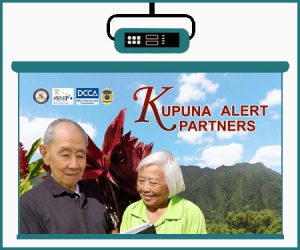 Fraud activity continues to grow for our senior population, but ultimately anyone can be victimized. To prevent identity theft and fraud, the Community and Crime Prevention partners with the Department of Commerce and Consumer Affairs, Office of the Securities Commissioner; Department of Public Safety, Narcotics Enforcement Division; and Department of Health, Office of Executive Aging, Senior Medicare Patrol Hawaii on the KAP. This multi-agency group offers a one-hour presentation on the topics of Medicare fraud, prescription drug misuse, securities fraud, and scams in Hawaii.
Fraud activity continues to grow for our senior population, but ultimately anyone can be victimized. To prevent identity theft and fraud, the Community and Crime Prevention partners with the Department of Commerce and Consumer Affairs, Office of the Securities Commissioner; Department of Public Safety, Narcotics Enforcement Division; and Department of Health, Office of Executive Aging, Senior Medicare Patrol Hawaii on the KAP. This multi-agency group offers a one-hour presentation on the topics of Medicare fraud, prescription drug misuse, securities fraud, and scams in Hawaii.
For more information on the KAP presentations, click here for online request form or email [email protected].
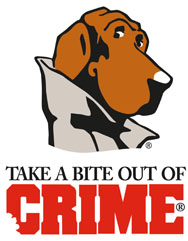 The Hawaii McGruff Crime Prevention Campaign was established to inform children how to keep safe and prevent crime. As a national symbol of crime prevention, McGruff has significantly influenced and raised the awareness of Hawaii’s children on the dangers of drugs and crime.
The Hawaii McGruff Crime Prevention Campaign was established to inform children how to keep safe and prevent crime. As a national symbol of crime prevention, McGruff has significantly influenced and raised the awareness of Hawaii’s children on the dangers of drugs and crime.
For more information on McGruff Crime Prevention Campaign, go to ncpc.org.
To request a McGruff appearance, click here for online request form or email [email protected].
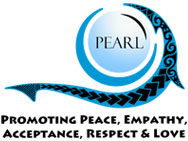 The prevention of bullying and its consequences to violence is a community issue.
The CCP Branch partners with the Adult Friends for Youth and other community partners on the PEARL Convention conducted annually for elementary and middle school students.
The prevention of bullying and its consequences to violence is a community issue.
The CCP Branch partners with the Adult Friends for Youth and other community partners on the PEARL Convention conducted annually for elementary and middle school students.
The PEARL (Peace, Empathy, Acceptance, Respect, and Love) Convention teaches youth how to address bullying and how to resolve conflict in a peaceful manner.
If your school is interested in attending the PEARL Convention, please visit afyhawaii.com/sabvc.
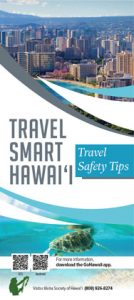 The CCP Branch is involved in the Travel Smart Hawaii, Travel Safety Tips, which is an informational card to keep our visitors safe from crime and environmental factors. This was produced as a partnership with Visitor Aloha Society of Hawaii (VASH), Hawaii Hotel Visitor Industry Security Association (HHVISA), and the Department of the Attorney General.
The CCP Branch is involved in the Travel Smart Hawaii, Travel Safety Tips, which is an informational card to keep our visitors safe from crime and environmental factors. This was produced as a partnership with Visitor Aloha Society of Hawaii (VASH), Hawaii Hotel Visitor Industry Security Association (HHVISA), and the Department of the Attorney General.
The cards are available in English, Japanese, Korean, and Mandarin.
Go to the Digital and Print Materials section to download a copy.
 Understanding Hawaii’s laws and lifestyles are important for newcomers to weave their indigenous values in their new home. The CCP Branch produced The Voyaging Together to a New Life: An Acculturation Book for Newcomers in partnership with other agencies and organizations to support newcomers with the tools necessary to live safe and healthy.
Understanding Hawaii’s laws and lifestyles are important for newcomers to weave their indigenous values in their new home. The CCP Branch produced The Voyaging Together to a New Life: An Acculturation Book for Newcomers in partnership with other agencies and organizations to support newcomers with the tools necessary to live safe and healthy.
Topics include:
- The important role of the family in the home and at school;
- Caring for children;
- Child safety in the home and in the community;
- Hawaii laws; and
- Low or no-cost resources.
Downloadable copies of the book are available in English, Chuukese, Marshallese, and Spanish.
Go to the Digital and Print Materials section to download a copy.
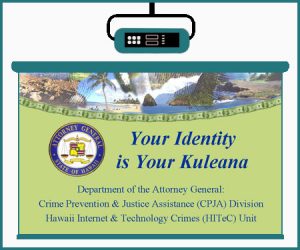 Your Identity Is Your Kuleana (Responsibility) is a presentation on identity theft and fraud prevention. Many Hawaii citizens have fallen prey to this type of crime, and victims of identity theft are not limited to a specific socio-economic, ethnic, gender, or age group. It is important for Hawaii citizens to be informed and educated about preventing identity theft and how they can protect themselves from being victimized.
Your Identity Is Your Kuleana (Responsibility) is a presentation on identity theft and fraud prevention. Many Hawaii citizens have fallen prey to this type of crime, and victims of identity theft are not limited to a specific socio-economic, ethnic, gender, or age group. It is important for Hawaii citizens to be informed and educated about preventing identity theft and how they can protect themselves from being victimized.
To request for a presentation on Your Identity Is Your Kuleana, click here for online request form or email [email protected].
Identity Theft, Frauds, and Scams
Identity theft, frauds, and scams are the fastest growing crimes in our communities, and many Hawaii citizens are victims of these serious crimes. This section will provide you with data from the Federal Trade Commission, resources and prevention tips, along with the Hawaii State Legislature webpage for you to keep up-to-date on the latest Hawaii laws that pertain to identity theft.
Federal Trade Commission
The Federal Trade Commission (FTC) Consumer Sentinel Data Book is available online in an interactive format providing data on:
- Identity Theft
- Do-Not-Call Registry violations
- Computers, the Internet, and Online Auctions
- Telemarketing Scams
- Advance-fee Loans and Credit Scams
- Immigration Services
- Sweepstakes, Lotteries, and Prizes
- Business Opportunities and Work-at-Home Schemes
- Health and Weight Loss Products
- Debt Collection, Credit Reports, and Financial Matters
The FTC Consumer Sentinel Data Book is updated quarterly and has a five-year data retention policy, with reports older than five years purged biannually.
If YOU Are A Victim of Identity Theft
- Close any financial accounts that have been tampered with or established fraudulently.
- File a police report to help you with creditors who may want proof of the crime.
![]() Hawaii Police Department
Hawaii Police Department
https://hawaiipolice.com/
Phone: 9-1-1 or (808) 935-3311 (non-emergency)
![]() Honolulu Police Department
Honolulu Police Department
https://honolulupd.org/
Phone: 9-1-1 or (808) 529-3111 (non-emergency)
E-Mail: [email protected]
![]() Kauai Police Department
Kauai Police Department
https://kauai.gov/POLICE
Phone: 9-1-1 or (808) 241-1711 (non-emergency)
![]() Maui Police Department
Maui Police Department
https://mauicounty.gov/122/Police-Department
Phone: 9-1-1 or (808) 244-6400 (non-emergency)
- Make sure to obtain the police report number and a copy of the report if possible.
- Place a one year fraud alert on your credit file. Ask creditors to call you before opening any new accounts or changing existing accounts. Request copies of your credit report and review them carefully.
![]() Equifax
Equifax
https://equifax.com/personal
Phone: 1-800-525-6285
Mail: Fraud Victim Assistance Department Consumer Fraud Division
P.O. Box 740256
Atlanta, GA 30374
![]() Experian
Experian
https://experian.com/
Phone: 1-888-397-3742
Mail: National Consumer Assistance
P.O. Box 9554
Allen, TX 75013
![]() TransUnion
TransUnion
https://transunion.com/
Phone: 1-800-680-7289
Mail: Fraud Victim Assistance Department
P.O. Box 2000
Chester, PA 19016-2000
- Go to ftc.gov to file a complaint with the Federal Trade Commission and complete the Identity Theft Complaint Form and Identity Theft Affidavit.
If Your CHILD Is A Victim of Identity Theft
- Close any financial accounts that have been tampered with or established fraudulently.
![]() Hawaii Police Department
Hawaii Police Department
https://hawaiipolice.com/
Phone: 9-1-1 or (808) 935-3311 (non-emergency)
![]() Honolulu Police Department
Honolulu Police Department
https://honolulupd.org/
Phone: 9-1-1 or (808) 529-3111 (non-emergency)
E-Mail: [email protected]
![]() Kauai Police Department
Kauai Police Department
https://kauai.gov/POLICE
Phone: 9-1-1 or (808) 241-1711 (non-emergency)
![]() Maui Police Department
Maui Police Department
https://mauicounty.gov/122/Police-Department
Phone: 9-1-1 or (808) 244-6400 (non-emergency)
- Make sure to obtain the police report number and a copy of the report if possible.
- Place a one year fraud alert on your credit file. Ask creditors to call you before opening any new accounts or changing existing accounts. Request copies of your credit report and review them carefully.
- Contact each credit reporting company:
![]() Equifax
Equifax
https://equifax.com/personal
Phone: 1-800-525-6285
Mail: Fraud Victim Assistance Department Consumer Fraud Division
P.O. Box 740256
Atlanta, GA 30374
![]() Experian
Experian
https://experian.com/
Phone: 1-888-397-3742
Mail: National Consumer Assistance
P.O. Box 9554
Allen, TX 75013
![]() TransUnion
TransUnion
https://transunion.com/
Phone: 1-800-680-7289
Mail: Fraud Victim Assistance Department
P.O. Box 2000
Chester, PA 19016-2000
- Go to ftc.gov/ to file a complaint with the Federal Trade Commission and complete the Identity Theft Complaint Form and Identity Theft Affidavit.
- Have these documents ready to prove you are the child’s parent or legal guardian.
a. Write a letter to each credit reporting company that includes the child’s full name, date of birth, and home addresses for the last five years.
b. The credit reporting companies may require copies of:
• Child’s birth certificate listing the parents
• Child’s social security number
• Government issued identification card, i.e. driver’s license
• Proof of your address
The following link will provide you with information on Hawaii’s laws relating to identity theft and fraud. Due to the ever-changing nature of the law, victims of identity theft or fraud should contact their local Police Department to report any suspected crimes. For the most recent Hawaii Revised Statutes, go to https://www.capitol.hawaii.gov
§286-131 Unlawful Use of License
§487J-2 Social Security Number Protection
§487N-2 Notice of Security Breach
x§487R-2 Destruction of Personal Information Records
§489P-3 Security Freeze by Consumer Reporting Agency
§708-839.55 Unauthorized possession of confidential personal information
§710-1016.3 Obtaining a government-issued identification document under false pretenses in the first degree
§710-1016.4 Obtaining a government-issued identification document under false pretenses in the second degree
§708-839.6 Identity theft in the first degree
§708-839.7 Identity theft in the second degree
§708-839.8 Identity theft in the third degree
Online Safety for Youth
The Internet is an incredible tool for conducting research, remote learning, exploring the world, listening to music, connecting with friends, playing video games, and more. However, if used without proper knowledge or guidance, the Internet can be a dangerous place for youth, as there are numerous risks, some of which include cyberbullying, inappropriate content (sexting), virtual hijacking, and online offenders. This section provides youth and parents/guardians with information on youth at-risk data, resources and prevention tips, and a webpage link to the State Legislature to keep up-to-date on the latest Hawaii laws concerning online safety.
The Youth Risk Behavior Surveillance System (YRBSS) monitors six categories of health-related behaviors that contribute to the leading causes of death and disability among youth and adults, including:
- Behaviors that contribute to unintentional injuries and violence:
- Social media;
- Electronically bullied;
- Sexual behaviors related to unintended pregnancy and sexually transmitted diseases, including HIV infection;
- Alcohol and other drug use;
- Tobacco use;
- Unhealthy dietary behaviors; and
- Inadequate physical activity.
YRBSS is a system of a national school-based survey conducted by Centers for Disease Control and Prevention (CDC) and state, territorial, tribal; and local surveys conducted by state, territorial, and local education and health agencies and tribal governments.
If You are a Victim of Cyberbullying
Tell the bully to STOP! Make sure to remain calm. Don’t let your emotions take over. If the bullying continues, you can warn them that you will be reporting the harassment which is a criminal offense.
Do not press delete. Electronic messages from a cyberbully can be gathered as evidence of the behavior. Capture the screen image of a text message, app account, or webpage and save it or print it out to document the incident.
Block the bully. Many social media platforms have an option to block other users. You can now begin to remove yourself from the situation and prevent further direct contact from the cyberbully.
Report the incident. Talk to a parent or a trusted adult. You don’t have to face the bully alone. They can help you conquer the situation and reach out to the school or to local law enforcement.
You can submit an anonymous tip to law enforcement.
![]() Crime Stoppers Hilo Inc.
Crime Stoppers Hilo Inc.
https://www.hawaiipolice.com/contact-us/crime-stoppers
Crime Tip Hotline: (808) 961-8300
![]() CrimeStoppers Honolulu, Inc.
CrimeStoppers Honolulu, Inc.
https://honolulucrimestoppers.org/sitemenu.aspx?ID=606&
Crime Tip Hotline: (808) 955-8300
Web Tip: www.honolulucrimestoppers.org
![]() Crime Stoppers Kauai, Inc.
Crime Stoppers Kauai, Inc.
https://crimestopperskauai.org/
Crime Tip Hotline: (808) 246-8300
Web Tip: www.crimestopperskauai.org
![]() Maui Crime Stoppers, Inc.
Maui Crime Stoppers, Inc.
https://mauicrimestoppers.net/
Crime Tip Hotline: (808) 242-6966
Email: [email protected]
![]() CyberTipline
CyberTipline
https://missingkids.org/gethelpnow/cybertipline
Report child sexual exploitation
Hotline: 1-800-843-5678
Online Tip: cybertipline.org
Contact your local police department to file a police report.
![]() Hawaii Police Department
Hawaii Police Department
https://hawaiipolice.com/
Phone: 9-1-1 or (808) 935-3311 (non-emergency)
Text-to-9-1-1 for speech-impaired, hearing-impaired or if speaking could cause you harm.
![]() Honolulu Police Department
Honolulu Police Department
https://honolulupd.org/
Phone: 9-1-1 or (808) 529-3111 for non-emergency
Text-to-9-1-1 for speech-impaired, hearing-impaired or if speaking could cause you harm.
Email: [email protected]
![]() Kauai Police Department
Kauai Police Department
https://kauai.gov/police
Phone: 9-1-1 or (808) 241-1711 for non-emergency
Text-to-9-1-1 for speech-impaired, hearing-impaired or if speaking could cause you harm.
![]() Maui Police Department
Maui Police Department
https://mauicounty.gov/122/Police-Department
Phone: 9-1-1 or (808) 244-6400 for non-emergency
Text-to-9-1-1 for speech-impaired, hearing-impaired or if speaking could cause you harm.
The following link will provide you with information on Hawaii’s laws relating to online safety. Due to the ever-changing nature of the law, victims of Internet crimes should contact their local Police Department to report any suspected crimes. For the most recent Hawaii Revised Statutes, go to https://www.capitol.hawaii.gov.
§707-750 Promoting Child Abuse in the First Degree
§707-751 Promoting Child Abuse in the Second Degree
§707-752 Promoting Child Abuse in the Third Degree
§707-756 Electronic Enticement of a Child in the First Degree
§707-757 Electronic Enticement of a Child in the Second Degree
§711-1110.9 Violation of Privacy in the First Degree
§711-1111 Violation of Privacy in the Second Degree
§711-1106 Harassment
§711-1106.4 Aggravated Harassment by Stalking
§711-1106.5 Harassment by Stalking
§711-1106.6 Harassment by Impersonation
§712-1215.5 Promoting minor-produced sexual images in the first degree
§712-1215.6 Promoting minor-produced sexual images in the second degree
Digital and Print Materials
The CCP Branch produces and partners with other government agencies to develop materials for the public to inform them on the prevention of alcohol/tobacco/and other drugs, the criminal justice system for adults and juveniles, the prevention of identity theft/frauds/scams, how to keep safe online, travel safety, and useful information for newcomers relocating to Hawaii . Feel free to review these materials and print for your personal use.
The CCP Branch links to only government agencies and service providing organizations they are in partnership with.
Videos
Chad Owen’s Story
Length: 4:24 minutes
Listen to Chad Owens – Hawaii legend and pro-football player – share his story about learning to manage pain safely.
Don’t Drown Your Future: Roosevelt High School Graduate
Length: 30 seconds
Honolulu Liquor Commission PSA featuring Marcus Hee, Roosevelt High School graduate, speaking on why he doesn’t drink before he is 21 years old.
NIDA / NIH Drugs: Shatter the Myths
Length: 3:45 minutes
Animated version of NIDA’s “Drugs: SHATTER THE MYTHS” booklet, which answers teens’ most frequently asked questions about drugs and abuse with scientific facts and engaging images.
Off-Premise Seller Training Video: Liquor Consumption
Length: 8:12 minutes
This video is designed for liquor licensees and sellers licensed to sell liquor for consumption off its premises, such as a grocery store.
On-Premise Server Training Video: Liquor Consumption
Length: 12:15 minutes
This video is designed for liquor licensees and servers licensed to sell and serve alcohol on their premises, such as a restaurant.
Opioid Crisis in Hawaii 2019
Length: 7:34 minutes
Watch the video produced by Dr. Christian “Kimo” Alameda, Chief Executive Officer of Bay Clinic and Executive Director of the Hawaii County Office of Aging.
Teen Brain Development
Length: 3:10 minutes
National Institute on Drug Abuse (NIDA) explores in this video the intriguing similarities between the processes of brain development and computer programming. The analogy helps us understand why toxic environmental factors like drugs, bullying, or lack of sleep can have such a long-lasting impact on a teenager’s life and can be used to empower your children or students with information they need to make better decisions.
Teen was in the Fight for Her Life after Vaping a Cartridge a Day
Length: 8:24 minutes
Simah Herman, 18, became an anti-vaping advocate after surviving a severe lung illness that caused her to be placed in a medically induced coma – one of several recent incidents linked to vaping.
 The Teenage Brain Is Primed for Addiction
The Teenage Brain Is Primed for Addiction
Length: 2:21 min
We tend to think of addiction as an adult problem, but drug abuse starts, overwhelmingly, in adolescence. Psychiatrist and neuroscientist Amir Levine talks about how a teenager's brain is primed to soak up new experiences—the good and the bad—in this clip from "Craving Brain: The Neuroscience of Uncontrollable Urges," a program at the 2014 World Science Festival.
What Is Addiction?
Length: 3:12 minutes
Dr. John Marsden from the National Addiction Centre talks about what causes addiction.
 Drug Use Trends Among US Teens Monitoring the Future 2020 Survey Results
Drug Use Trends Among US Teens Monitoring the Future 2020 Survey Results
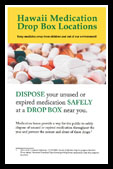
Hawaii Medication Dropbox and Disposal Program

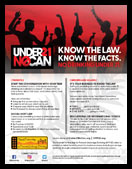
Videos
Chess Paw n in Investment Scheme
n in Investment Scheme
Length: 30 seconds
Some con artists rush in like a “knight” in shining armor, promising to make you rich. But they’re really just playing you like a pawn in their investment scheme. Knowing their strategy will keep you ahead in the game.
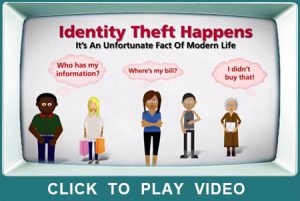 Five Ways to Help Protect Your Identity
Five Ways to Help Protect Your Identity
Length: 1:26 minutes
Routine steps we can all take to protect our personal information and reduce our risk of identity theft.
How to File a Complaint with the Federal Trade Commission
Length: 1:36 minutes
If a business doesn’t deliver on its promises or if someone cheats you out of your money, the Federal Trade Commission wants to hear about it.
IdentityTheft.gov Helps You Report and Recover from Identity Theft
Length: 1:17 minutes
Is someone using your personal information to open new accounts, make purchases or get benefits? Report it at identitytheft.gov and get a free personal recovery plan.
What to do After a Data Breach
Length: 1:02 minutes
Did you get a notice that says your personal information was exposed in a data breach? Visit identitytheft.gov to learn what you can do to protect your identity.
Your Identity Is Your Kuleana (Responsibility) English
Your Identity Is Your Kuleana (Responsibility) (Tagalog)
Hawaii's Fraud Prevention and Resource Guide, 3rd Edition (2020)
Hawaii's Fraud Prevention and Resource Guide, 2nd Edition (2015)
Kupuna Alert Partners Brochure

- Adult Felony Cases (ENGLISH) (2020)
- Adult Felony Cases (MARSHALLESE) (2023)
- Adult Felony Cases (CHUUKESE) (2023)

- Adult Misdemeanor Cases (ENGLISH) (2020)
- Adult Misdemeanor Cases (MARSHALLESE) (2023)
- Adult Misdemeanor Cases (CHUUKESE) (2023)

- Juvenile Cases: Hawaii Island County (ENGLISH) (2020)
- Juvenile Cases: Hawaii Island County (MARSHALLESE) (2023)
- Juvenile Cases: Hawaii Island County (CHUUKESE) (2023)

- Juvenile Cases: City & County of Honolulu (ENGLISH) (2023)
- Juvenile Cases: City & County of Honolulu (MARSHALLESE) (2023)
- Juvenile Cases: City & County of Honolulu (CHUUKESE) (2023)

- Juvenile Cases: Kauai County (ENGLISH) (2020)
- Juvenile Cases: Kauai County (MARSHALLESE) (2023)
- Juvenile Cases: Kauai County (CHUUKESE) (2023)

- Juvenile Cases: Maui County (ENGLISH) (2020)
- Juvenile Cases: Maui County (MARSHALLESE) (2023)
- Juvenile Cases: Maui County (CHUUKESE) (2023)
 Voyaging Together to a New Life: A Handbook for Newcomers to Hawaii
Print (available in English, Chuukese, Marshallese, Spanish)
Voyaging Together to a New Life: A Handbook for Newcomers to Hawaii
Print (available in English, Chuukese, Marshallese, Spanish)
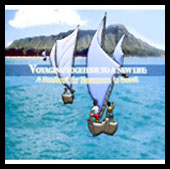
Videos
For Parents and Families
Helping Kids Be Safer Online
Length: 2:25 minutes
NetSmartz “Into the Cloud” teaches children important strategies to stay safe online.
Sextortion PSA
Length: 2:12 minutes
Anything private shared online could be used to hurt you. If someone demands sexual images from you, stop immediately and report it.
For Students in Middle and High School
Be Someone’s Hero
Length: 2:25 minutes
Be more than a bystander; be someone’s hero and help them to stop the bully.
For Students in Elementary School
Bad Netiquettes Stink
Length: 6:45 minutes
Clicky and his friends race to stop Potty-Mouth Pete from “Roasting” aka spreading bad netiquette.
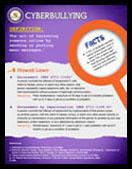
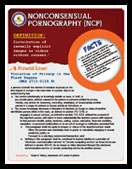
Hawaii Nonconsensual Pornography
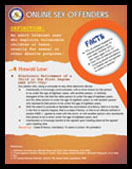
Hawaii Laws: Online Sex Offender
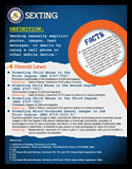
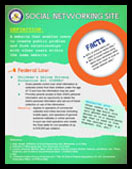
Hawaii Laws: Social Networking

Keeping Safe in Cyberspace Brochure
Youth Activity Sheets
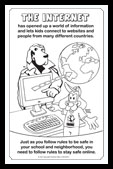
Keeping Safe in McGruff Cyberspace Coloring Sheet
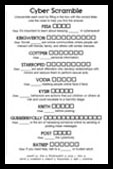
Keeping Safe in Cyberspace Scramble Sheet
General Resources
The following is a list of resources by county, state, and national.
We do not link to any for-profit websites. We primarily post information provided by other government agencies, associations, and other organizations that we have specific partnership with.
Hawaii Partnership to Prevent Underage Drinking (HPPUD)
https://www.hppud.org/
The Hawaii Partnership to Prevent Underage Drinking (HPPUD) was created to address the problem of underage drinking in the State of Hawaii. The members of the partnership represent local and federal agencies, non-profit organizations, private businesses, and community residents concerned with the health of Hawaii’s youth.
| @hppudoahu | |
| @hppudoahu | |
| @hppud |
Hawaii Police Department
https://www.hawaiipolice.com/
The employees of the Hawaii Police Department are committed to preserving the Spirit of Aloha. We will work cooperatively with the community to enforce the laws, preserve peace, and provide a safe environment.
| @HawaiiPoliceDepartment | |
| @Hawaii_Police |
Crime Stoppers Hilo, Inc.
https://www.hawaiipolice.com/contact-us/crime-stoppers
Crime Stoppers is a volunteer program run by ordinary citizens who want to keep their community safe. Make an anonymous tip through Crime Stoppers and you may be eligible for a reward of up to $1,000.
Honolulu Police Department
https://www.honolulupd.org/
The Honolulu Police Department embodies the values and purpose guided by the principles of serving and protecting with aloha in dealing with the public and fellow employees.
| @honolulu.police | |
| @honolulupolice |
CrimeStoppers Honolulu, Inc.
https://honolulucrimestoppers.org/
Crime Stoppers Honolulu encourages members of the community in assisting local law enforcement to reduce crime and improve the quality of life operating in partnership with the Honolulu Police Department, the media, and the community. Make an anonymous tip through Crime Stoppers Honolulu and you may be eligible for a reward of up to $1,000. Crime Stoppers Honolulu has expanded the program to include a Student Crime Stoppers and Animal Crime Stoppers programs.
| @CrimestoppersHonolulu | |
| @crimestoppers_honolulu | |
| @CrimeStopperHNL |
Kauai Police Department
https://www.kauai.gov/police
The employees of the Kauai Police Department, in full understanding of the “Aloha Spirit,” are committed to enhancing the quality of life in our community.
| @kauaipd |
Crime Stoppers Kauai, Inc.
https://crimestopperskauai.org/
Crime Stoppers Kauai encourages members of the community to assist local law enforcement agencies in the fight against crime. Make an anonymous tip through Crime Stoppers Kauai and you may be eligible for a reward of up to $1,000.
Maui Police Department
https://www.mauicounty.gov/122/Police-Department
The mission of the Maui Police Department is to serve the community in a manner that epitomizes those ideals woven into the fabric of the Constitution of the United States and the Spirit of Aloha. We will serve to enhance the quality of life in cooperation with all of those who share these beautiful islands in making this a better place to live.
| @MauiPoliceDepartment | |
| @mauipd |
Maui Crime Stoppers, Inc.
https://www.mauicrimestoppers.net/
Maui Crime Stoppers is a community-based non-profit organization dedicated to solving and preventing serious crime in partnership with citizens, media, law enforcement and the criminal justice system in Maui County. Make an anonymous tip through Maui Crime Stoppers and you may be eligible for a reward of up to $1,000.
Prosecuting Attorney
Department of the Prosecuting Attorney – City & County of Honolulu
https://honoluluprosecutor.org/
The duty of the Department of the Prosecuting Attorney is to seek justice on behalf of the people of the City and County of Honolulu. The department comprises about 100 deputy prosecutors and about 170 support staff, including paralegals, victim-witness advocates, investigators and clerical personnel.
Department of the Prosecuting Attorney – Maui County
https://www.mauicounty.gov/123/Prosecuting-Attorney
The Department of the Prosecuting Attorney for the County of Maui serves the islands of Maui, Molokai, and Lanai. It is responsible for the prosecution of those who violate the criminal and traffic laws or rules and regulations of the State of Hawaii and the County of Maui.
Office of the Prosecuting Attorney – Hawaii County
https://www.hawaiicounty.gov/departments/prosecuting-attorney
The Office of the Prosecuting Attorney is the legal agency responsible for prosecuting all violations of State and County laws, ordinances, rules, and/or regulations on behalf of the Big Island community.
Office of the Prosecuting Attorney – Kauai County
https://www.kauai.gov/ProsecutingAttorney
It is our mission to promote the fair, impartial and expeditious pursuit of justice in every case, to ensure safer communities, to promote integrity in our profession, to temper justice with compassion, and to do our work in an open, transparent, and accountable way.
Weed and Seed Hawaii
https://www.weedandseedhi.org/
Their mission is to reduce crime in communities through law enforcement, community engagement, social and economic revitalization, neighborhood beautification, and an investment in the future of youth.
| @weedandseedhonolulu | |
| @weedandseedwaipahu | |
| @weedandseedewa |
Alu Like, Inc. https://www.alulike.org/ Hoʻala Hou - High Risk Reduction Programs to provide substance free activities at various schools statewide and partner with other local agencies.
Coalition for a Drug-Free Hawaii (CDFH) https://www.drugfreehawaii.org/ CDFH provides innovative programs and services with expertise in designing and implementing effective prevention programs.
E Ola Pono Ma Kapolei https://www.drugfreehawaii.org/e-ola-pono-ma-kapolei E Ola Pono Ma Kapolei coalition’s mission is to prevent and reduce youth substance use in Kapolei 96707. Initiated in January 2012 and mentored by EWAlution 96706, E Ola Pono Ma Kapolei gathered community leaders, schools, organizations, businesses, residents, and others in a call to action to address substance abuse in the Kapolei community. E Ola Pono Ma Kapolei is spearheaded by Kapolei High School, Kapolei Middle School, and dedicated community partners who are working toward their vision of Kapolei as a unified and thriving community where people are resilient, living healthy and drug free.
| @eolaponomakapolei | |
| @eolaponomakapolei | |
| @eolaponomakapo1 |
EWAlution96706 https://www.drugfreehawaii.org/ewalution-96706 EWAlution 96706 (E9) has been making a difference in Ewa Beach since 2000. The E9 coalition works to keep Ewa Beach a safe, healthy, and drug-free community for its youth and families. Supported by CDFH, E9 began through the combined efforts of invested members including youth, residents, parents, and agencies that provide services and programs in the community.
| @ewalution96706 |
Hawaii Prevention Resource Center (HIPRC) https://www.drugfreehawaii.org/hawaii-prevention-resource-center The Hawaii Prevention Resource Center (HIPRC) serves as Hawaii’s center for alcohol, tobacco, and other drug prevention educational materials and resources. HIPRC has a lending library, clearinghouse, references, and technical assistance services. Resources include collections of books, curriculum, periodicals, brochures, infographics, fact sheets, and DVDs on drug abuse, prevention, and related issues.
TeenLink Hawaii https://www.drugfreehawaii.org/teenlink-hawaii TeenLink Hawaii strives to empower teens to become active community participants, raise awareness on issues teens face and provide credible information on a variety of issues such as relationships, sex, alcohol, tobacco, drugs, emotions, family, school, violence, LGBTQ, foster care, activism, and personal development.
| @teenlinkhawaii |
Criminal Justice Division, Hawaii Internet Crimes Against Children (HICAC) https://ag.hawaii.gov/hicac/ The Hawaii Internet Crimes Against Children (HICAC) website contains education and prevention resources to protect the children of Hawaii in cyberspace.
Crime Prevention and Justice Assistance Division (CPJAD) https://ag.hawaii.gov/cpja/ Crime Prevention and Justice Assistance Division (CPJAD) serves as the central agency to provide the Attorney General, the chief law enforcement officer of Hawaii, with the information and resources needed to address crime and crime prevention. Our mission is to assist the criminal justice system agencies to improve service delivery and to promote the involvement of communities in the prevention of crime.
Missing Child Center Hawaii (MCCH) https://ag.hawaii.gov/cpja/mcch/ MCCH is one of the specialized criminal justice programs in the Department of the Attorney General. MCCH primarily operates as the State’s missing children clearinghouse and a resource center for law enforcement, social services and families of missing children.
Department of Commerce and Consumer Affairs (DCCA) https://cca.hawaii.gov/ The mission of the Department of Commerce and Consumer Affairs is to uphold fairness and public confidence in the marketplace, promote sound consumer practices, and increase knowledge, opportunity, and justice in our community. DCCA’s goals are to promote a strong and healthy business environment while protecting the community from unfair and deceptive business practices. For information on identity theft go to, https://cca.hawaii.gov/identity-theft-information/.Office of the Securities Commissioner Investor Education Program https://cca.hawaii.gov/sec/iep/
Office of Consumer Protection https://cca.hawaii.gov/ocp/
Department of Health https://health.hawaii.gov/ The mission of the Department of Health is to protect and improve the health and environment for all people in Hawaii.Alcohol and Drug Abuse Division (ADAD) https://health.hawaii.gov/substance-abuse/ ADAD provides the leadership necessary for the development and delivery of quality substance abuse prevention, intervention and treatment services for the residents of the State of Hawaii.
EMS & Injury Prevention System Branch https://health.hawaii.gov/injuryprevention/ The Injury Prevention and Control Section, EMS & Injury Prevention System Branch, collaborates with partners across the state to address the leading causes of injury that include drowning prevention, fall prevention, poisoning prevention, suicide prevention, traffic safety, and violence and abuse prevention.
Executive Office on Aging Senior Medicare Patrol (SMP) Hawaii https://www.smphawaii.org/ SMP Hawaii is a volunteer-based federal program administered under the Hawaii State Department of Health – Executive Office on Aging (EOA), the state designated lead agency for the coordination of aging initiatives. We collaborate with a network of partners and advocates to expand outreach and assistance to communities statewide.
Maternal and Child Health Branch https://health.hawaii.gov/mchb/ The Maternal and Child Health Branch administers a statewide system of services to reduce health disparities for women, children, and families of Hawaii.
Department of Public Safety https://dps.hawaii.gov/ The Department of Public Safety upholds justice and public safety by providing correctional and law enforcement services to Hawaii’s communities with professionalism, integrity and fairness.Narcotics Enforcement Division https://dps.hawaii.gov/ned/ The Narcotics Enforcement Division protects and promotes the health and safety of Hawaii by enforcing controlled substance and regulated chemical laws and pursuing the appropriate use of pharmaceuticals
Hawaii Coalition Against Sexual Assault https://www.hawaiicoalition.org Supports sexual assault programs and agencies in each county that provide sexual assault intervention and treatment and/or prevention services by encouraging the healing of sexual assault victims and survivors and the improvement of services to all victims and potential victims of sexual assault.
High Intensity Drug Trafficking Area (HIDTA) - Hawaii https://www.hi-hidta.org/ Hawaii was designated as a HIDTA Region in 1999 when Congress recognized Hawaii’s Crystal Methamphetamine (Ice) crisis. The mission of the Hawaii HIDTA is to reduce drug trafficking in Hawaii through the collective efforts of federal, state, and local law enforcement entities.
Hawaii Opioid Initiative (HOI) https://www.hawaiiopioid.org/ The Hawaii Opioid Initiative (HOI) started in 2017. HOI is a collaboration of public health, public safety, healthcare professionals, and community partners working together to address misuse and overdose related to opioids and other drugs.
| @EndOverdoseHI | |
| @endoverdosehi | |
| @EndOverdoseHI |
Hawaii Poison Center https://www.hipoisoncenter.org/ Provides expert medical advice to the public and private sectors.
Hawaii Public Health Institute (HIPHI) https://www.hiphi.org/ HIPHI is a nonprofit hub for health, bringing community-based organizations, government, academia, foundations, and business together to improve the quality of life for the people of Hawaii.
808 No Vape https://808novape.org/ A youth led organization working to educate the community on the health consequences of vaping.
| @808novape | |
| @808novape |
Liliuokalani Trust https://onipaa.org/ Commitment to prioritizing the health and safety of kamalii (children) and their ohana (families).
Pacific Institute for Research and Evaluation (PIRE) https://www.pire.org/ Pacific Institute for Research and Evaluation (PIRE) is an independent, nonprofit organization merging scientific knowledge and proven practice to create solutions that improve the health, safety, and well-being of individuals, communities, and nations around the world.
American Academy of Pediatrics
https://www.healthychildren.org/English/media/Pages/default.aspx
Media Time Calculator tool to help parents create a personalized media use plan for their child.
American Association of Poison Control Centers
https://aapcc.org/
A primary resource for information on poisoning.
Better Business Bureau (BBB) Northwest – Pacific
https://www.bbb.org/local-bbb/bbb-great-west-pacific
Serves to create a community of trustworthy businesses and charities.
Centers for Disease Control and Prevention (CDC)
https://www.cdc.gov/
Center for Disease Control (CDC) conducts critical science and provides health information that protects our nation against expensive and dangerous health threats and responds when these arise.
Common Sense Media
https://www.commonsensemedia.org/
Common Sense Media is dedicated to improving the lives of kids and families by providing the trustworthy information, education, and independent voice they need to thrive in a world of media and technology.
Community Anti-Drug Coalitions of America (CADCA)
https://www.cadca.org/
The mission of Community Anti-Drug Coalitions of America (CADCA) is to strengthen the capacity of community coalitions to create and maintain safe, healthy and drug-free communities globally. This is accomplished by providing technical assistance and training, public policy advocacy, media strategies and marketing programs, training and special events.
ConnectSafely
https://connectsafely.org/
ConnectSafely is a forum for parents, teens, educators, and advocates designed to give teens and parents a voice in the public discussion about youth online safety, and has tips, as well as other resources, for safe blogging and social networking. Along with NetFamilyNews.org, it is a project of the non- profit Tech Parenting Group.
Consumer Financial Protection Bureau (CFPB)
https://www.consumerfinance.gov/
The Consumer Financial Protection Bureau (CFPB) is a U.S. government agency that makes sure banks, lenders, and other financial companies treat you fairly. CFPB is committed to providing consumers with up-to-date information and resources to protect and manage their finances.
| Facebook: | https://www.facebook.com/CFPB |
| Twitter: | https://twitter.com/CFPB |
| YouTube: | https://www.youtube.com/user/cfpbvideo |
Crimes Against Children Research Center (CCRC)
https://www.unh.edu/ccrc/
Promote knowledge and improve strategies for preventing crimes against children.
Cyber Security
https://dod.hawaii.gov/ohs/cyber
The Cyber Security Office is part of the Office of Homeland Security, State Department of Defense. The office works in partnership with local cybersecurity professional associations, volunteers, educators, students and cybersecurity enthusiasts who have come together to provide free and social-distance friendly community cyber safety virtual events and activities to include cyber safety presentations, challenges and career-based discussions.
CyberSmart!
https://cybersmart.org/
CyberSmart! helps educators gain the 21st century skills needed to safely harness the Internet’s potential — promoting students’ creative inquiry, collaboration, and critical thinking. They offer CyberSmart! Online Workshops facilitated professional development and the free CyberSmart Student Curriculum empowers students to use the Internet safely, responsibly, and effectively. The free Cybersmart! Educator Toolbar puts 21st century skills into practice every day, with just-in-time 24/7 access to annotated essential resources to support student learning.
DIGIZEN
https://www.digizen.org/
Practical advice on cyberbullying, using social networking sites safely and creatively, and being a good net citizen. Check out their cyberbullying films and teacher guides.
Entertainment Software Rating Board (ESRB)
https://www.esrb.org/
Provides content information in a game or app so parents can decide which games are right for their child.
Federal Bureau of Investigation (FBI)
https://www.fbi.gov
The Federal Bureau of Investigation is the domestic intelligence and security service of the United States and its principal federal law enforcement agency.
Cyber Crime Division https://fbi.gov/investigate/cyber The FBI is the lead federal agency for investigating cyber-attacks by criminals, overseas adversaries, and terrorists. American companies are targeted for trade secrets and other sensitive corporate data, and universities for their cutting-edge research and development. Citizens are targeted by fraudsters and identity thieves, and children are targeted by online predators. The FBI Cyber Division investigates cyber threat to the nation.
Safe Online Surfing (SOS) https://www.fbi-sos.org/ The Safe Online Surfing Internet Challenge is a free, online, educational program available to public and private schools nationwide. Designed to meet federal and state Internet safety mandates, students take web-based quizzes and complete an online Scavenger Hunt to learn important Internet safety and cyber citizenship concepts.
Federal Trade Commission (FTC)https://ftc.gov/
A national consumer protection agency that works to prevent fraudulent, deceptive, and unfair business practices. Learn how to protect your information and how to respond if it’s stolen.
For Consumers https://www.consumer.ftc.gov/
For Youth https://www.consumer.ftc.gov/sites/default/files/games/off-site/youarehere/index.html
For Parents and Teachers https://www.consumer.ftc.gov/sites/default/files/games/off-site/youarehere/pages/parents_and_teachers.html
OnGuardOnline https://www.consumer.ftc.gov/features/feature-0038-onguardonline Provides practical tips from the federal government and the technology industry on topics such as identity theft, spyware, phishing, spam and e commerce/ shopping online. Their colorful flash-based quiz section would be great for student use and includes 13 games that help kids test their cybersmarts. Resources are available in English and Spanish. Schools can order bulk copies of NetCetera: Chatting with Kids About Being Online to send home to parents.
Get Net Wise
https://www.getnetwise.org/
The GetNetWise coalition works to provide Internet users with the resources they need to make informed decisions about their and their family’s use of the Internet.
iKeep Safe
https://ikeepsafe.org/
The iKeepSafe mission is to provide a safe digital landscape for children, schools, and families by supporting the protection of student privacy, while advancing learning in a digital culture.
Internet Crime Complaint Center (IC3)
https://www.ic3.gov/default.aspx
Submit a report concerning suspected Internet-facilitated crimes to the Federal Bureau of Investigation.
Mothers Against Drunk Driving (MADD)
https://www.madd.org/
The mission of Mothers Against Drunk Driving (MADD) is to end drunk driving, help fight drugged driving, support the victims of these violent crimes, and prevent underage drinking.
National Center for Missing & Exploited Children
https://www.missingkids.org
As the nation's clearinghouse and comprehensive reporting center for all issues related to the prevention of and recovery from child victimization, NCMEC leads the fight against abduction, abuse, and exploitation - because every child deserves a safe childhood.
NetSmartz https://www.missingkids.org/NetSmartz The NetSmartz Workshop is an interactive, educational safety resource from the National Center for Missing & Exploited Children and Boys & Girls Clubs of America that uses age-appropriate, 3D activities to teach children how to stay safer on the Internet.
NSTeens https://www.nsteens.org/ Covers topics like social networking and cyberbullying. The site uses flash-based comics and videos to explain how to use the Internet safely and avoid cyberbullies and predators.
National Crime Prevention Council (NCPC)
https://www.ncpc.org/
The National Crime Prevention Council’s (NCPC) mission is to be the nation’s leader in helping people keep themselves, their families, and their communities safe from crime. To achieve this, NCPC produces tools that communities can use to learn crime prevention strategies, engage community members, and coordinate with local agencies.
Celebrate Safe Communities (CSC) https://www.ncpc.org/programs/celebrate-safe-communities/ Celebrate Safe Communities (CSC) is crime prevention done the right way – local people working with local law enforcement to address local issues. CSC spotlights communities’ crime prevention efforts enhances public awareness of vital crime prevention and safety messages, and recruits year-round support for ongoing prevention activities that help people keep neighborhoods safe from crime and prepared for any emergency.
National Criminal Justice Reference Service (NCJRS)
https://www.ncjrs.gov/
Justice and drug-related information.
National Cyber Security Alliance (NCSA)
https://staysafeonline.org/
Through collaboration with the government, corporate, non-profit and academic sectors, the National Cyber Security Alliance seeks to create a culture of cyber security and safety awareness by providing knowledge and tools to prevent cyber-crime and attacks.
National Institute on Drug Abuse (NIDA)
https://www.drugabuse.gov/
National Institute on Drug Abuse (NIDA) is the lead federal agency supporting scientific research on drug use and its consequences.
National Sexual Violence Resource Center
https://www.nsvrc.org
Provides information and tools to prevent and respond to sexual violence. NSVRC translates research and trends into best practices that help individuals, communities and service providers achieve lasting change.
NetFamilyNews
https://www.netfamilynews.org/
A nonprofit news service for parents, educators, and policymakers who want to keep up on the latest technology news and commentary about online youth, in the form of a daily blog or weekly email newsletter.
Office of National Drug Control Policy (ONDCP)
https://www.whitehouse.gov/ondcp/
The Office of National Drug Control Policy (ONDCP) works to reduce drug use and its consequences by leading and coordinating the development, implementation, and assessment of U.S. drug policy. In addition to its vital ongoing work, ONDCP also provided administrative and financial support to the President’s Commission on Combating Drug Addiction and the Opioid Crisis.
Pew Research Center
https://www.pewresearch.org/internet/
Pew Research Center is a nonpartisan fact tank that informs the public about the issues, attitudes and trends shaping the world. It conducts public opinion polling, demographic research, media content analysis and other empirical social science research. Pew Research Center does not take policy positions. It is a subsidiary of The Pew Charitable Trusts.
Social Security Administration (SSA)
https://ssa.gov/
Delivers Social Security services that meet the changing needs of the public.
StaySafe.org
https://staysafe.org/
Staysafe.org is an educational site intended to help consumers understand both the positive aspects of the Internet as well as how to manage a variety of safety and security issues that exist online.
StopBullying.gov
https://www.stopbullying.gov/
StopBullying.gov provides information from various government agencies on what bullying is, what cyberbullying is, who is at risk and how you can prevent and respond to bullying.
U.S. Department of Health and Human Services
Substance Abuse and Mental Health Service Administration (SAMHSA)
https://www.samhsa.gov/
The Substance Abuse and Mental Health Services Administration (SAMHSA) is the agency within the U.S. Department of Health and Human Services that leads public health efforts to advance the behavioral health of the nation. SAMHSA’s mission is to reduce the impact of substance abuse and mental illness on America’s communities.
U.S. Department of Justice
Drug Enforcement Administration (DEA)
https://www.dea.gov/
The mission of the Drug Enforcement Administration (DEA) is to enforce the controlled substances laws and regulations of the United States.
Office of Justice Programs
https://ojp.gov/spotlight/fraud-awareness/overview
The OJP Fraud Awareness Special Feature provides a listing of federal resources on the prevention and investigation of fraud offenses and services for victims.
U.S. Postal Inspection Service
https://uspis.gov/
Enforces the laws that defend the nation’s mail system from illegal or dangerous use.
Web Wise Kids
https://www.webwisekids.org/
Web Wise Kids offers fun, challenging and interactive simulations based on real-life criminal cases, focusing on issues like piracy, fraud, online romances, bullying, and social networking.
